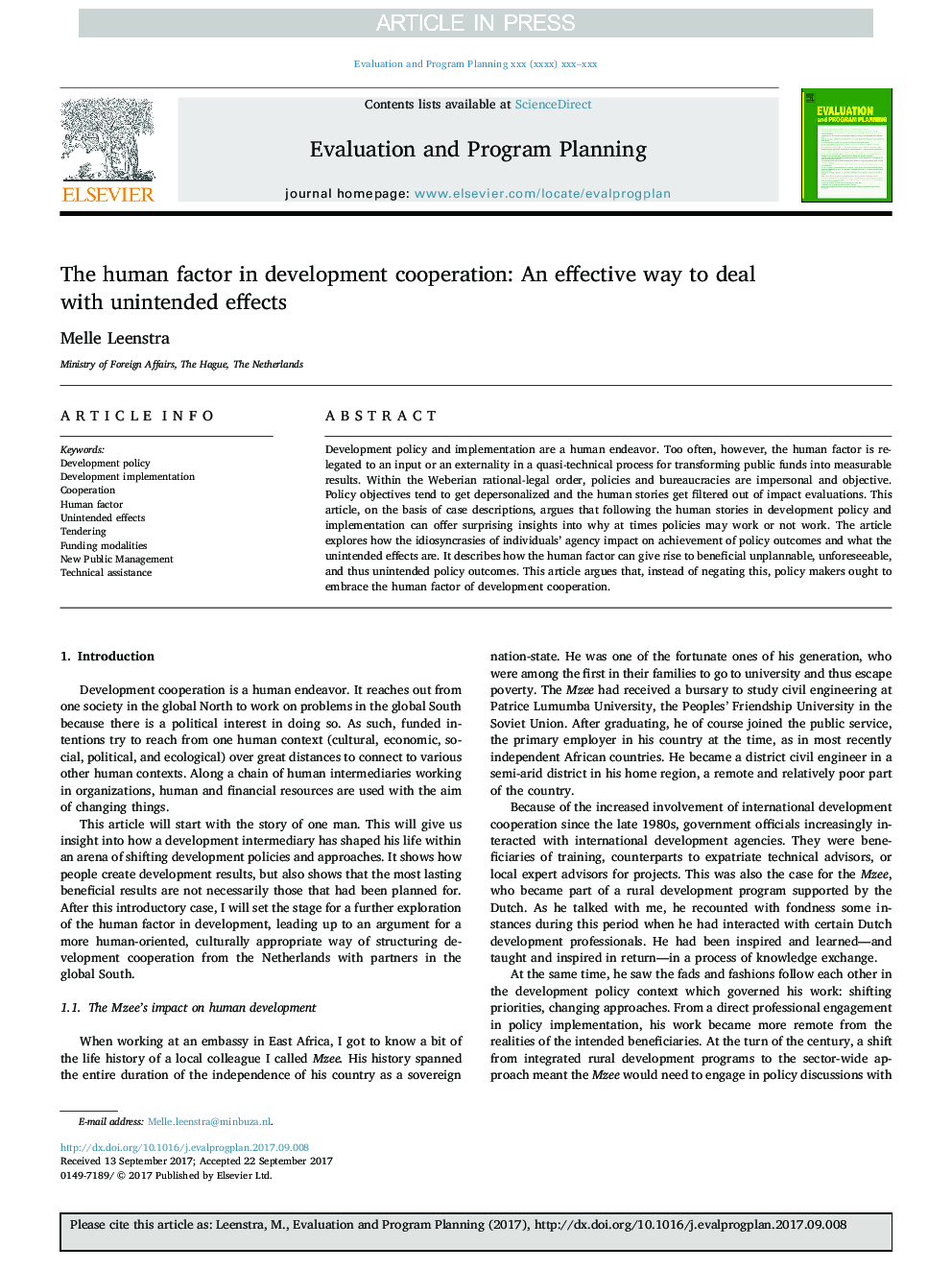| Article ID | Journal | Published Year | Pages | File Type |
|---|---|---|---|---|
| 6792140 | Evaluation and Program Planning | 2018 | 7 Pages |
Abstract
Development policy and implementation are a human endeavor. Too often, however, the human factor is relegated to an input or an externality in a quasi-technical process for transforming public funds into measurable results. Within the Weberian rational-legal order, policies and bureaucracies are impersonal and objective. Policy objectives tend to get depersonalized and the human stories get filtered out of impact evaluations. This article, on the basis of case descriptions, argues that following the human stories in development policy and implementation can offer surprising insights into why at times policies may work or not work. The article explores how the idiosyncrasies of individuals' agency impact on achievement of policy outcomes and what the unintended effects are. It describes how the human factor can give rise to beneficial unplannable, unforeseeable, and thus unintended policy outcomes. This article argues that, instead of negating this, policy makers ought to embrace the human factor of development cooperation.
Keywords
Related Topics
Health Sciences
Medicine and Dentistry
Public Health and Health Policy
Authors
Melle Leenstra,
